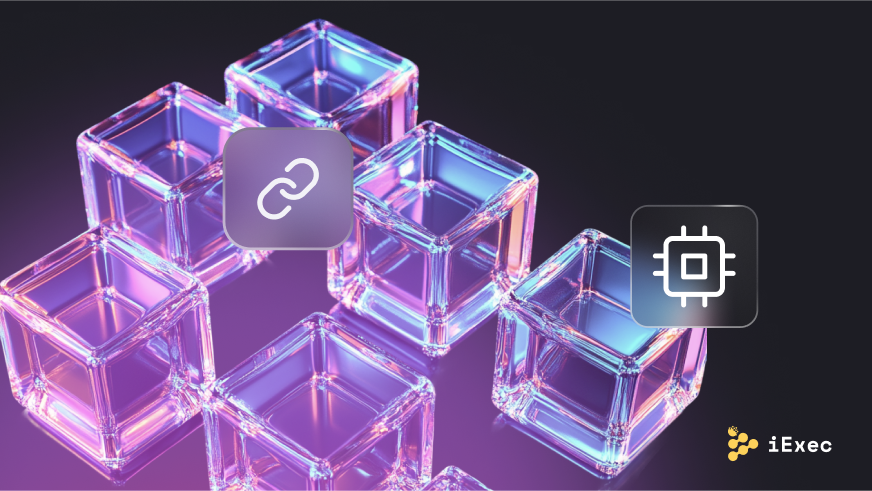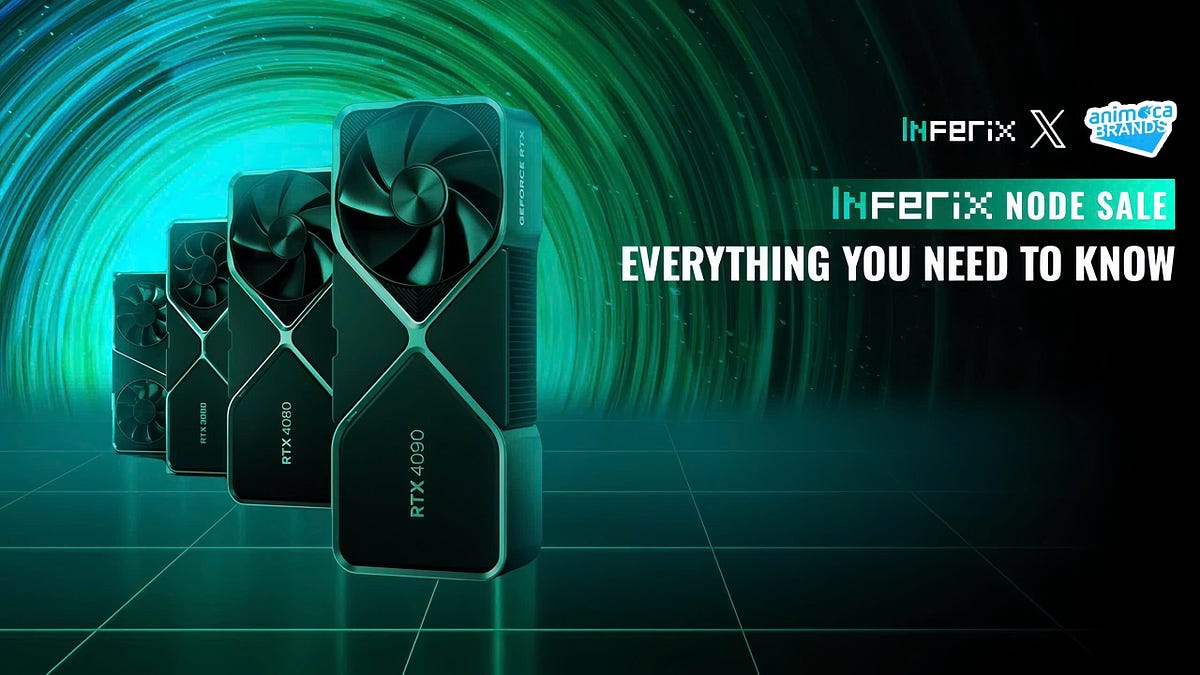The DePIN Explorer - DePIN Scan
Trending 🔥
DePIN Market Cap
$19,864,974,553
+3.8%
Volume
$4,979,563,269
+8.0%
DePIN Projects
321
DePIN Devices
40,286,746
+0.2%
DePIN Projects
This page highlights DePIN AI projects that are focused on building in the DePIN sector. Currently 89 DePIN projects are listed here.
Project | Token | Category | Social Following | Market Cap | Token Price | 24h Trade VOL | 1D | 7D | 30D | Total Devices | Favorites | Last 7 days |
|---|---|---|---|---|---|---|---|---|---|---|---|---|
 | THETA | ServerAI | 272,081 | $897,151,669 | $0.8972 | $29,001,395 | +2.4% | -0.1% | +22.3% | 5,885 | 4 | |
.jpg) | GRASS | ComputeAI | 529,819 | $651,147,315 | $2.36 | $67,234,594 | -5.0% | +17.0% | +38.1% | - | 28 | |
 | AKT | ServerAI | 124,188 | $429,327,623 | $1.58 | $15,957,043 | +2.6% | +5.5% | +28.6% | 472 | 5 | |
.jpg) | IO | ComputeAI | 512,187 | $163,216,833 | $1.02 | $35,966,677 | +4.2% | +7.6% | +26.9% | - | 2 | |
 | HONEY | SensorAI | 50,652 | $123,784,656 | $0.02824 | $1,509,280 | +4.5% | -0.0% | -16.2% | 8,037 | 1 | |
.jpg) | NOS | ComputeAI | 62,767 | $61,010,975 | $0.7315 | $1,446,215 | -3.1% | -5.6% | -18.4% | - | 2 | |
 | PHB | AICompute | 156,841 | $33,017,968 | $0.6425 | $6,642,384 | +0.9% | +8.6% | +10.9% | 1 | 0 | |
| - | ComputeAIStorageCloud | 41,605 | $12,611,183 | $0.06768 | $805,017 | -0.8% | +4.6% | +7.0% | - | 3 | ||
 | Swan | AIComputeChainCloudStorage | 294,818 | $2,270,242 | $0.01850 | $204,572 | -0.4% | -10.4% | +39.6% | 653 | 0 | |
 | UPT | BandwidthAIMobile | 346,560 | $1,995,840 | $0.009121 | $59,980 | +0.1% | -5.1% | -11.4% | 1,121,008 | 21 | |
.jpeg) | SENTAI | AI | 28,343 | $1,667,418 | $0.001667 | $170,220 | +13.6% | +92.7% | +99.6% | - | 4 | |
 | - | SensorMobileAI | 13,115 | - | - | - | - | - | - | 8 | 5 | - |

2 days ago
DePIN: Revolutionizing Infrastructure with DecentralizationIn 2025, DePIN (Decentralized Physical Infrastructure Networks) has transitioned from a niche within the cryptocurrency space to a critical component of the real world. This evolution is not merely theoretical; it encompasses tangible elements such as routers, GPUs, sensors, and solar panels, all contributing to a new kind of internet that is peer-to-peer, tokenized, and built from the edge. DePIN fundamentally alters the traditional infrastructure model by enabling everyday users to contribute compute, storage, bandwidth, or energy, and in return, they receive compensation. With a market cap exceeding $50 billion and over 350 tokens, DePIN has emerged as Web3's fastest-growing vertical, supported by real-world deployments and increasing revenue streams.
Leading projects like iExec, Arweave, and Helium are at the forefront of this movement, utilizing smart contracts to operate their networks without intermediaries. Contributors can easily set up nodes, serve the network, and earn tokens, all while ensuring data privacy and system resilience. However, scaling these networks presents significant challenges, including the need for coordination, cross-chain interoperability, and navigating regulatory landscapes. iExec, in particular, excels in providing confidential computing infrastructure that is essential for AI, data management, and real-time applications.
Ultimately, DePIN is on the path to establishing a decentralized operating system for the physical world. This innovative approach is not only fast and composable but also represents a paradigm shift in how infrastructure is conceived and utilized. Rather than relying on rented systems, the future of infrastructure is about earning it, one node at a time, empowering individuals to take part in this transformative ecosystem.

2 days ago
Inferix to Launch Worker Node Sale, Expanding Decentralized GPU NetworkThe DePIN (Decentralized Physical Infrastructure Networks) narrative is rapidly gaining traction, bolstered by the introduction of innovative protocols and the expansion of existing ones. Recent reports indicate that the DePIN sector's total market capitalization has surged by 132% year-over-year, surpassing $40 billion. Additionally, startups within this domain have raised over $266 million in funding. With its demonstrated real-world applications and strategic partnerships, DePIN is poised to transform major industries such as telecommunications, energy, and computing. Notably, the compute sub-sector is anticipated to become one of the largest DePIN markets, with Inferix leading the charge as Asia's largest decentralized GPU network, offering high-performance GPUs for AI training and visual computing at competitive costs.
Inferix has announced a partnership with Animoca Brands Japan to launch the Inferix Worker Node Sale on May 30, 2025. This sale will feature a network of decentralized machines, categorized as Manager, Verifier, and Worker nodes. The Worker Node is crucial for handling the majority of rendering and processing tasks. When an AI or rendering job is requested, the Manager node distributes the tasks to Worker nodes, which then return the results for verification. Successful verification results in rewards distributed in the form of IFX tokens from the Inferix blockchain, incentivizing participation in the network.
The Worker Node License, represented as an ERC721 NFT, allows holders to earn rewards by operating a Worker Node Client. Inferix aims to deploy around 100,000 Worker Nodes, with 75% of the Ecosystem Fund allocated for service revenue rewards. The Node Sale will include both a Whitelist Sale and a Public Sale, commencing simultaneously on May 30, 2025. Interested participants can find detailed information about the sale structure, pricing tiers, and eligibility criteria through the official channels. Inferix's innovative GPU network is set to revolutionize visual computing, enabling faster and more cost-effective rendering solutions for a variety of industries.

2 days ago
Messari Predicts DePIN Market Cap to Reach $3.5 Trillion by 2028In a recent report, Messari, a prominent crypto data platform, has projected that the market capitalization of Decentralized Physical Infrastructure Networks (DePIN) could reach an astounding $3.5 trillion by 2028. This forecast comes on the heels of a significant event in Europe, the "2025 Iberian Peninsula blackout," which resulted in a €1.6 billion setback and highlighted the vulnerabilities of centralized systems. The incident has prompted a reevaluation of aging energy and communication infrastructures, emphasizing the urgent need for decentralized alternatives like DePIN.
Messari's analysis indicates that the DePIN market is gaining momentum, with its value estimated to grow to $50 billion in 2024. The first quarter of this year showcased a surge in capital markets, technology adoption, and sector innovation, despite the sector still being in its early stages. With over 13 million devices contributing to the decentralized network and $350 million in seed funding, the demand for DePIN is expected to rise exponentially in the coming years. The anticipated market cap of $3.5 trillion would surpass the $1.8 trillion valuation of the telecom services market by 2024, according to Data Bridge.
The report also underscores the roles of Solana and Base as pivotal players in the DePIN ecosystem. Messari noted that DePINs launched a year prior to its Q1 2025 report achieved an average fully diluted valuation of $760 million, marking significant growth. Solana is positioned to become a leading network infrastructure, while Base is expected to see increased demand for consumer-focused applications. Other notable projects within the Solana ecosystem include Render, Helium Mobile, Hivemapper, Xnet, and Nosana, all of which are set to play crucial roles in the evolution of DePIN.

4 days ago
Decentralizing Telecom Infrastructure: A Win-Win for Small Businesses and Telecom GiantsIn a recent interview at Consensus 2025 in Toronto, Frank Mong, the COO of Nova Labs, emphasized the financial benefits of decentralizing telecommunication infrastructure for both small businesses and large telecom corporations. He highlighted that local operators, such as bars and restaurants, can generate revenue by hosting wireless hotspots, thereby expanding network coverage. This decentralized approach allows significant cost savings for telecom giants, who can utilize the Helium Network's telemetry to enhance their services in areas that typically lack coverage, known as dead zones.
Mong pointed out the high costs associated with traditional telecom infrastructure, noting that establishing a single 5G tower can cost around $300,000. Instead of burdening consumers with expensive phone plans, he proposed a model where individuals with Wi-Fi networks can share their connections securely, providing valuable data to major companies like AT&T. This innovative use of decentralized physical infrastructure networks exemplifies how blockchain technology can enhance resilience against outages and disruptions while delivering real-world value.
In addition to these insights, Nova Labs has been actively forming partnerships with telecom companies to improve network coverage. Notably, in January 2024, they collaborated with Telefónica in Latin America, and more recently, in April 2025, they partnered with AT&T to facilitate automatic access for users within the Helium Network's coverage area. With over 95,000 mobile hotspots in the U.S. and more than 284,000 active IoT hotspots globally, Mong believes that the success seen in the U.S. and Mexico should be replicated worldwide as Nova Labs continues to expand its reach through strategic partnerships.
Signup for latest DePIN news and updates







